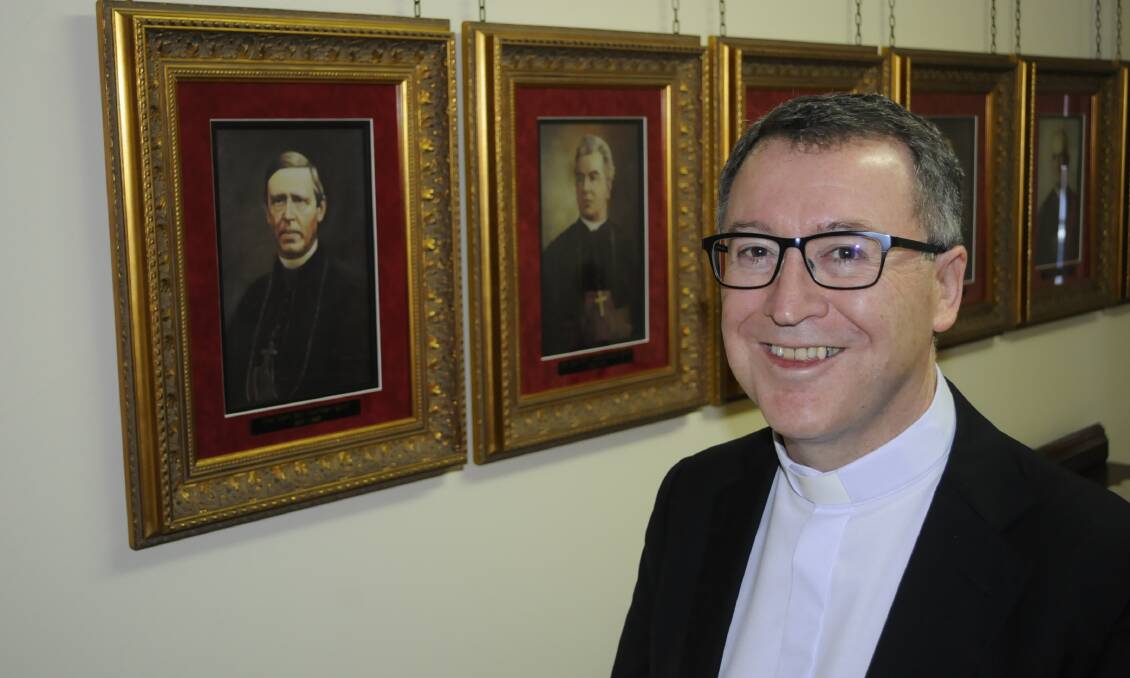
CELIBATE priests may be more “available” than married ones Catholic Diocese of Bathurst’s Bishop Michael McKenna says.
Subscribe now for unlimited access.
or signup to continue reading
A submission by the National Council of Priests to the Australian Catholic Church Plenary Council conference will argue that priests in remote parts of the country should be allowed to marry, and that priests who left the church to marry should be allowed to return to the priesthood.
There may be no married priests in the Catholic Diocese of Bathurst, but Bishop Michael McKenna says he is willing to seriously consider the issue.
“I’m very open to looking at it seriously, and looking at it seriously does mean looking deeply into it. It may be one of those areas where more latitude is given to individual bishops or perhaps national bishops’ conferences to decide on cases rather than every case having to go through Rome,” he said.
However, Bishop McKenna said celibate priests were an advantage for the diocese.
“Theoretically, the celibate clergy are a bit more available than if they’re looking after a family,” he said.
Theoretically, the celibate clergy are a bit more available than if they’re looking after a family.
- Catholic Diocese of Bathurst Bishop Michael McKenna
“If you’ve got a priest who’s got a wife and family and you need to shift him from Mudgee to Coonamble then that might not be possible. One of the things that having celibate clergy is supposed to give you is that they’re more free to be of service wherever they’re sent and also to be available.”
Bishop McKenna said there were a number of issues at hand, including: allowing priests to marry, the ordination of men who are married, and priests who had left the church to marry.
In his experience, when priests left the church to marry there was “more to it than you would think”.
“My experience is there’s always a lot more to it than merely the fact of getting married and that’s one of the things you would look at on a case-by-case basis,” Bishop McKenna said.
“In a lot of cases you’d say well ‘no, that really wouldn’t be in the best interests of the man and his wife or indeed the church’.”
Bishop McKenna said married men could already be ordained with permission of the Pope [Francis], but only under “exceptional circumstances”.
As an example,he said if a “suitable” married Anglican priest wanted to become a Catholic priest, he may apply for permission.
“It’s one of those things that on the surface looks simple enough but like most things in life when you look into, particularly the pastoral practicalities of it, there’s a lot more so it wouldn’t be an overnight thing but it could well happen,” Bishop McKenna said.
“It can be more tricky to find a suitable married man to ordain than a suitable celibate man because it places very particular demands on the marriage and so not every wife is willing and able to be part of this.”
Just a few years ago, for the first time, the Bathurst Diocese ordained four married men as deacons, but Bishop McKenna said this involved “a long process of preparation” with the man and his wife.
“The one thing that we were very strict on was that we said their first vocation is to your marriage and if having the vocation of an ordained deacon on top of that is going to be troublesome for your marriage then it’s best not to do that,” he said.
“The practical pastoral difficulties are not insurmountable. You’ve got to be conscious of them and realise it could be done but there are a lot of challenges to work through.”


